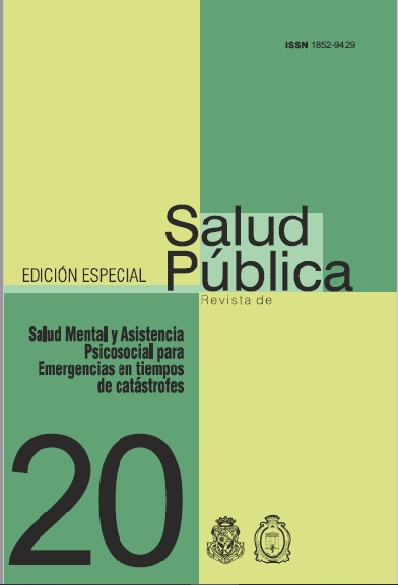Providing tools to face emotional stress in the community during covid-19 pandemic
Keywords:
psychoeducation, community, resources, self-efficacy, collective efficacyAbstract
The notion of (secondary)prevention of the Mental Health consequences after catastrophes today is based on the concept of Psycho-Social Assistance for Emergencies. It is known that the provision of community-based Psychosocial Support is the critical factor that influences in the reduction of the psychosocial consequences of disasters and that the capacities needed to accompany affected people are few and easily teachable, since there existmany techniques and little theory is required. Making it possible to give back to populationsthecapacity to cope healthily - although not without suffering -, with their own resources.Like that one can confront the effects of so many personal and community losses, as well as the many heavy interventions, poorly explained by political leaders. Through virtual workshops, with little investment of time (90 minutes) sharing -voluntarily- of knowledge and techniquesfrom SPS is described.In that way it is possible to enhance the resilience of an affected – not sick- population, and by that motivate for solidarity and a possible post-pandemic growth.
Downloads
References
-
Downloads
Published
Issue
Section
License
Copyright (c) 2020 Escuela de Salud Pública y Ambiente. Facultad de Ciencias Médicas. Universidad Nacional de Córdoba

This work is licensed under a Creative Commons Attribution-NonCommercial 4.0 International License.
Authors who publish with this journal agree to the following terms:
- Authors retain copyright and grant the journal right of first publication with the work simultaneously licensed under a Creative Commons Attribution License which allows the work to be copied, distributed, exhibited and interpreted as long as it is not done for commercial purposes.
- Authors are able to enter into separate, additional contractual arrangements for the non-exclusive distribution of the journal's published version of the work (e.g., post it to an institutional repository or publish it in a book), with an acknowledgement of its initial publication in this journal.
- Authors are permitted and encouraged to post their work online (e.g., in institutional repositories or on their website) after the publication process. (See The Effect of Open Access). (See The Effect of Open Access).



